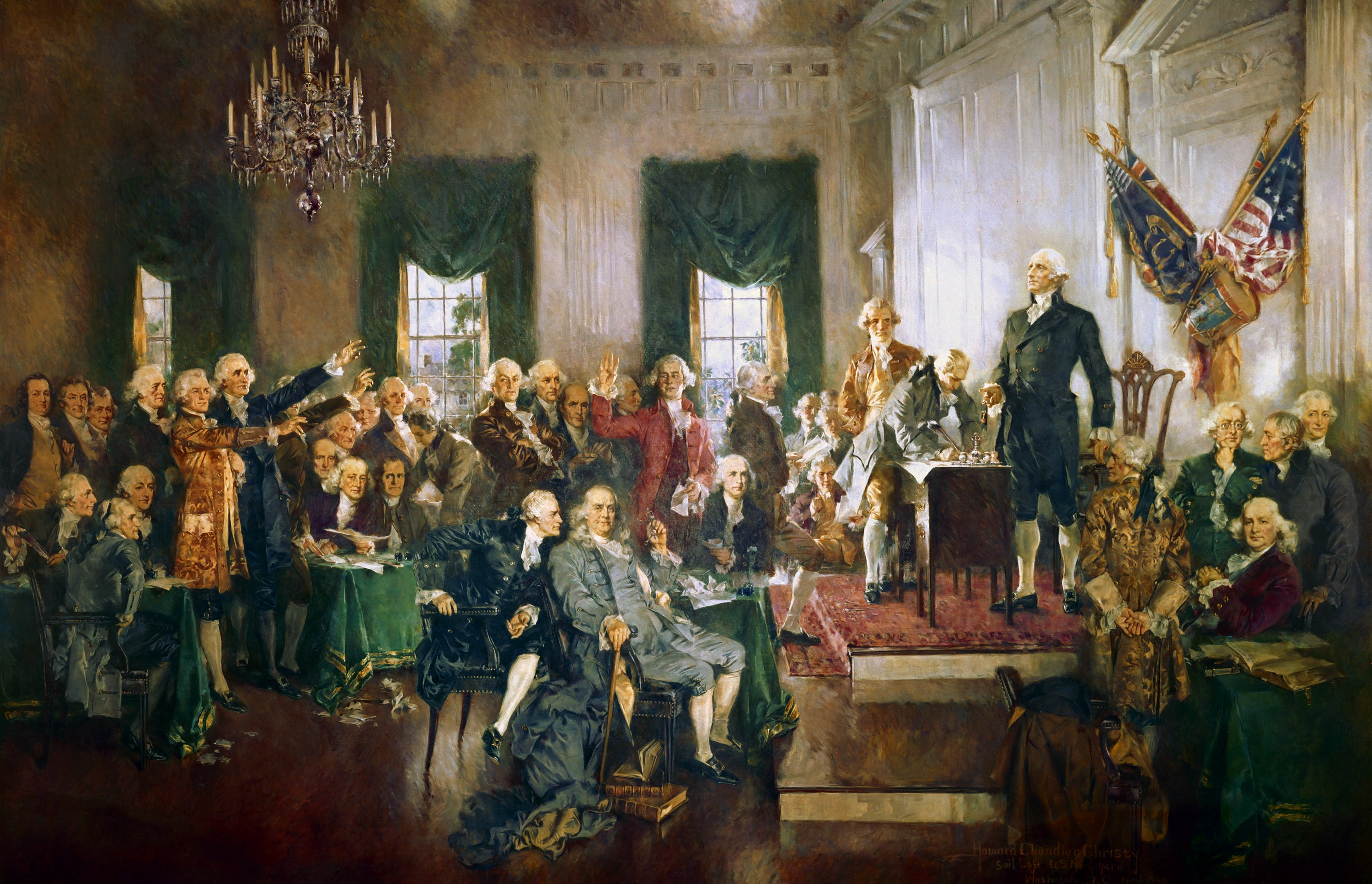
The Founders would be appropriately bewildered by many facets of modern life in year 250 of the American experiment, but they’d probably be downright shocked by how far we have let our approach to educating young people stray from their original vision.
They believed unequivocally that the point of education in America should be to impart knowledge to young people that would help them be responsible citizens, contributing members of their communities, and ultimately, defenders of constitutional democracy. Thomas Jefferson and James Madison extolled civic learning as a bulwark against tyranny. And President George Washington, in his final Annual Address to Congress in 1796, said that the “education of our Youth in the science of Government” would prepare them to be “future guardians of the liberties of the Country.”
To the Founders, education with civics at the center was nothing less than a pillar of our experiment in human freedom. Unfortunately, after a century-long march of special interests and cultural conflict, civics has been relegated to the periphery. The early actions of the Trump Administration indicate that we have a window of opportunity to put things back on track and return civics to the center, as the Founders intended.
The Hollowing Out of Civics
Today, civics is a full-year high school course in only seven states. A mere five states require a one-semester middle school civics course, and only one state, New Hampshire, dedicates instructional time for civics in grades K-5. Our current annual national investment in civics equates to less than 50 cents per student.

To the Founders, education with civics at the center was nothing less than a pillar of our experiment in human freedom.
The consequences of going against the Founders’ wishes are clear.
The most recent available data shows that less than a quarter (22 percent) of 8th graders demonstrated proficiency in civics — the first decline in nearly 25 years. Young Americans are disengaging from our democratic systems at alarming rates. Trust in all types of institutions has cratered.
All of these trends are being exacerbated by AI and other technologies, which are presenting us with a fundamental test of human agency in a country whose constitutional democracy was designed to maximize it under the rule of law. Therefore, it becomes that much more important to leverage civic education to help young people achieve an ironclad understanding of their liberties and build the communication, collaboration, and critical thinking skills to navigate citizenship and the economy.
Bringing Civics Back to the Center
Our journey to bring civics back to the center of education starts with acknowledging that huge swaths of the public – across generations and political persuasions – support more high-quality civic education. A large study from the University of Southern California Dornsife Center shows 70 percent of American adults across the political spectrum support more civic education. Another recent report highlights how over 90 percent of young people believe that everyone should have access to civic education, but few opportunities exist in or out of school.
Unfortunately, after a century-long march of special interests and cultural conflict, civics has been relegated to the periphery.
Americans want this, and we can deliver it to them in the following ways:
Celebrate the Constitution: Few things seem to bring Americans together these days, but the Founders’ words and the Constitution are incredible unifiers. Recent research from the Cato Institute highlights how an overwhelming majority of Americans (94 percent) believe that the Constitution is at least somewhat important for protecting their liberty, including 56 percent who believe it is extremely important. The most popular of the enumerated rights in the Constitution was equal protection under the law (77 percent).
Support State and Local Civics: Changes by the Trump Administration will drive even more power to the states, particularly relating to education, and this is where we can have the greatest impact bringing civics back to the center. Utah Governor Spencer Cox (R) set the example when he recently signed a bipartisan bill to add a social studies requirement to Utah’s high school curriculum with a strong focus on mastering primary source documents and learning civics through policy analysis, governmental systems, civic engagement, or junior ROTC. Cox called the legislation one of the “most important bills of the 2025 legislative session.” More than 170 other bills impacting civic education have also been introduced in 41 states this year.
Lift Up Civic Educators: Without good social studies and civics teachers, we cannot deliver quality civic education, period. America’s civic educators, from the classroom to libraries and community clubs like 4H, are part of a legacy of defending our constitutional democracy that goes back to the founding. We simply must find a way to support social studies teachers, including by bringing them together more effectively with parents, improving their civics content knowledge, and helping them provide more engaging methods for students to learn civics.
There is no more important calling on the road ahead than to return civics to the center of our lives and the way we educate our children.
As always, we’re reminded of a quote from iCivics’ founder, the late U.S. Supreme Court Justice Sandra Day O’Connor: “We pay a price when we deprive children of the exposure to the values, principles, and education they need to make them good citizens.” Our only edit would be to have this quote apply to all people, and our call to action is civics for all, one community at a time.
Louise Dubè is the CEO of iCivics. Shawn Healy is iCivics’ Chief Policy and Advocacy Officer and directs CivxNow.org, a coalition of more than 370 organizations from across the viewpoint spectrum working to advance civic education policy.




